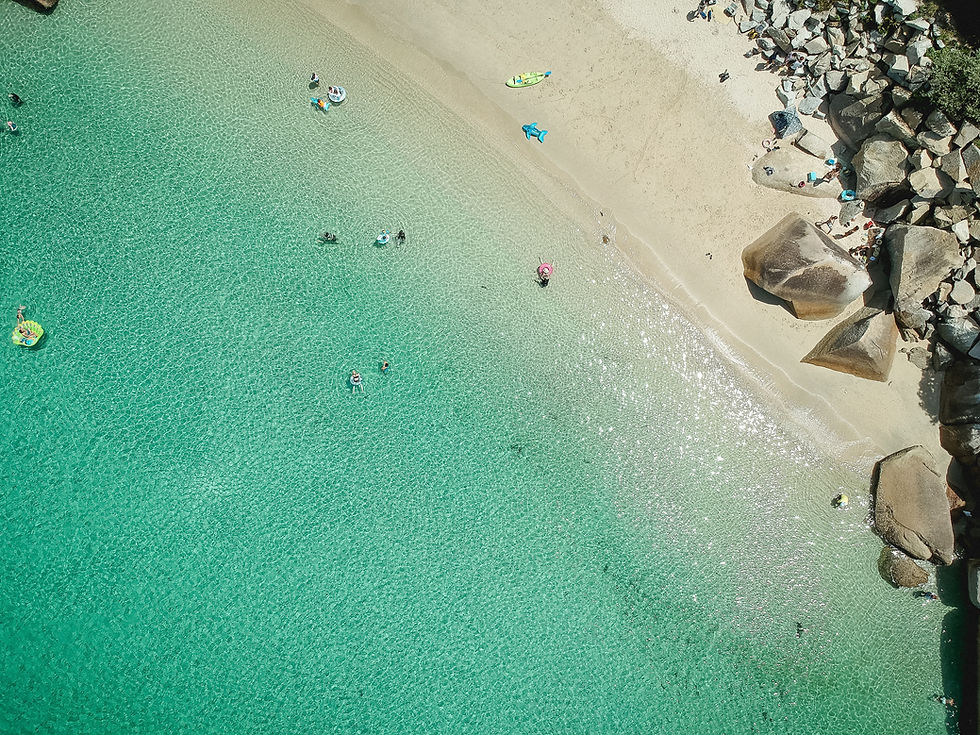[Explainer - Water Crisis]
- Tuyet Jen Phan

- Nov 3, 2019
- 3 min read
Updated: Apr 16, 2024
What is Water Crisis?
Water Crisis is the phenomenon of increasingly scarce clean water sources. Water pollution as well as irrational use of water, causing water shortage in some areas of the world.
This is one of the largest global risks in terms of potential impact over the next decade. It is manifested by partial or no satisfaction of expressed demand, economic competition for water quantity or quality, disputes between users, irreversible depletion of groundwater, and negative impacts on the environment.
Some areas of the world are facing Water scarcity
Chennai, the sixth-largest city in India, is facing a severe water shortage.
With the four reservoirs the city’s population uses for water drying up, residents are forced to line up every day to collect water from trucks that carry water into the city. Chennai is just the most severe example of an ongoing drought that is leaving 600 million people in India suffering from water shortages.
The conditions in Chennai are an extreme example of water shortages affecting many cities across the globe. According to the United Nations, 4 out of every 10 people are affected by water scarcity.
Mexico City, Mexico
Mexico City’s water issues come from its location; the city is built in a valley devoid of any above-ground water sources, and the vast majority of its water supply is stored in an underground aquifer. The city pumps out twice as much water as it puts in, leading to the water supply slowly dwindling and causing water shortages among the low-income residents of the city. The city’s pipes are poorly constructed, and so prone to leaks and breaks that 40% of the water supply is wasted.
And other cities at risk of running out of water:
Cape Town, South Africa
Cairo, Egypt
Tokyo, Japan
Jakarta, Indonesia
São Paulo, Brazil
Beijing, China
Bangalore, India
Melbourne, Australia
London, United Kingdom
What is the importance of water?
People use water in many daily activities. Base on the purpose of using water, we have 3 groups of Water Use:
Agricultural Water Use
Agricultural water is water that is used to grow fresh produce and sustain livestock. The use of agricultural water makes it possible to grow fruits and vegetables and raise livestock, which is the main part of our diet.
As the human population increases, there is growing concern that there won’t be sufficient water to grow the food required. The direct link between food and water, and the world reliance on both. Meat takes much more water to produce than cereals, and a steady increase in meat consumption has increased worldwide water stress.
Industrial Water Use
Manufacturing and other industries use water during the production process for either creating their products or cooling equipment used in creating their products. Industrial water is used for fabricating, processing, washing, diluting, cooling, or transporting a product. Water is also used by smelting facilities, petroleum refineries, and industries producing chemical products, food, and paper products. Large amounts of water are used mostly to produce food, paper, and chemicals.
Domestic Water Use
Domestic water use is water used for indoor and outdoor household purposes— all the things you do at home: drinking, preparing food, bathing, washing clothes and dishes, brushing your teeth, watering the garden, and even washing the dog. Although domestic water use accounts for only a small fraction of the total, it is concentrated in urban areas where it may cause local problems.
What should we do to protect water?
This is 10 ways to Protect and Conserve Groundwater:
Dispose of chemicals properly.
Take used motor oil to a recycling center.
Limit the amount of fertilizer used on plants.
Take short showers.
Shut the water off while brushing teeth.
Run full loads of dishes and laundry.
Check for leaky faucets and have them fixed.
Abandon all wells that are not needed.
Keep a pitcher of drinking water in the refrigerator.
Get involved in water education.
There are many ways to protect the water and we have to raise awareness about the Water Crisis base in different ways.
Knowing the importance of water, I hope that from now on, you and I will know how to limit water use and use water properly. Turn off the water immediately when not in use and take a shower rather than a bath ...












![[Explainer - Can we live forever?]](https://static.wixstatic.com/media/11062b_68560acc8d2f49fa8b98b07811dc1102~mv2.jpg/v1/fill/w_980,h_654,al_c,q_85,usm_0.66_1.00_0.01,enc_avif,quality_auto/11062b_68560acc8d2f49fa8b98b07811dc1102~mv2.jpg)
![[Explainer - Why women are paid less]](https://static.wixstatic.com/media/185ec4_a609c1c31d324e5c9f76c9a5e24fbe1e~mv2.jpg/v1/fill/w_720,h_540,al_c,q_85,enc_avif,quality_auto/185ec4_a609c1c31d324e5c9f76c9a5e24fbe1e~mv2.jpg)
![[Explainer - What is Music?]](https://static.wixstatic.com/media/1ea32e245d2c4c30940ca512dd5862b8.jpg/v1/fill/w_980,h_653,al_c,q_85,usm_0.66_1.00_0.01,enc_avif,quality_auto/1ea32e245d2c4c30940ca512dd5862b8.jpg)
Comments